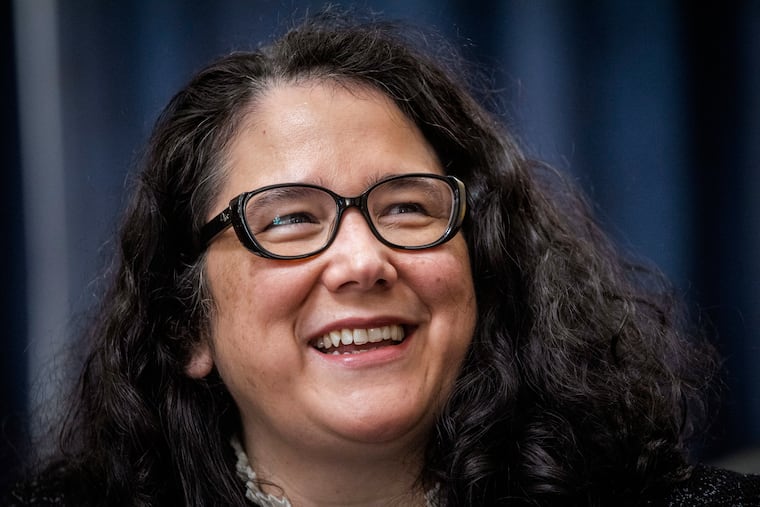Where to find grants for small businesses owned by people of color and women
Here are more than a dozen grants, funding opportunities and programs for Black entrepreneurs, women, and other underrepresented groups.

U.S. Commerce Department data have shown that businesses owned by people of color are less likely than businesses owned by white people to secure funding, especially for businesses with less than $500,000 in gross receipts.
In 2021, companies founded solely by women garnered only 2.3% of the total capital invested in venture-backed start-ups in the United States, according to venture capital research site PitchBook, and businesses run by Black women received less than 1%. In a 2018 survey by credit site Experian, 62% of LGBTQ respondents said they had experienced financial problems because of their gender identity or sexual orientation.
If you’re a person of color who owns a business, getting the funding you need is harder than for your counterparts who are white. But there are funding opportunities available specifically for you. Here are some you should know about.
Amazon’s Black Business Accelerator Program. Created to support Black entrepreneurs, the program offers financial support, mentorship, business advice, and promotional support for Black-owned businesses. Eligible sellers will have access to free imaging services, cash grant opportunities, advertising credits, and money toward start-up costs.
Amber Grant Foundation. With a simple goal of supporting female entrepreneurs, the Amber Grant Foundation was founded in 1998 and awards a $10,000 grant each month, and an additional $25,000 grant each December, to female entrepreneurs with a compelling story.
BIPOC Small Business Grant by Annuity Payment Freedom. This grant by financial consulting firm Annuity Payment Freedom was created in response to the impact of the pandemic on BIPOC (Black, Indigenous, and people of color)-owned businesses. There are marketing grants to help drive traffic and microgrant opportunities. Grants are awarded to businesses on a rolling basis, with winners announced on the last day of each month.
Black Founder start-up Grant. The Black Founder start-up Grant program from the SoGal Foundation, a worldwide funding platform for diverse entrepreneurs, provides grants of as much as $10,000 to Black and multiracial women and nonbinary entrepreneurs. The program accepts applications on a rolling basis and is open to entrepreneurs with a legally registered business who plan to seek investor financing to scale.
Capital One Business Grant. Capital One Bank’s Business Grant program, in partnership with the Association for Enterprise Opportunity, aims to support Black-owned businesses with $10,000 grants to supplement any business that was lost during the COVID-19 pandemic. Grants are still available.
Fearless Strivers Grant. Credit card company Mastercard and early-stage financier Fearless Fund are partnering to create the Fearless Strivers Grant, which is dedicated to supporting small businesses owned by Black women. The aim is to provide 11 small businesses with $10,000 grants, one-on-one mentorship and digital tools to help foster growth. Applications are open through the end of the year.
Foundation for a Just Society Grants. The nonprofit Foundation for a Just Society offers grants to local, national, regional, and global organizations and networks that support the rights of women, girls, and LGBTQ individuals. You can email the organization for more information on specific grants.
Go.Be. Elevate Fund. Formerly known as the Good Work Network, the organization aims to help entrepreneurs of color and female small-business owners. Go.Be. has grants of as much as $4,000 available for projects meant to help grow your small business. To be eligible for this grant, you must be a Go.Be. client, so head to their website and see whether your small business fits the criteria for entry.
IFundWomen COVID-19 Relief Fund. The platform IFundWomen launched a COVID-19 Relief Fund that provides community-funded microgrants and free coaching to women-owned businesses affected by the pandemic. Grants are still available and are distributed on a rolling basis. To be considered, female entrepreneurs must start a campaign on IFW.
Swiftarc Beauty Fund. Swiftarc Ventures, a venture capital firm, has created a $10 million beauty fund aimed at female-led beauty and wellness start-ups. This fund is backed by influential women in the beauty and investment industries and offers not only grant money, but also peer-to-peer networking opportunities and mentorship.
In addition to the resources above, the federal government also has training and contracting opportunities available, including:
8(a) Business Development Program. The purpose of this program, through the U.S. Small Business Administration, is to assist small businesses owned by socially and economically disadvantaged people. Business that are certified to participate get access to training and technical assistance, and become eligible for certain contracting opportunities with the federal government.
HUBZone Program. This program aids businesses in underutilized business zones by making them more competitive for some government contracts. Businesses that join the HUBZone program can compete for set-aside contracts and receive preference on others, including a 10% price evaluation preference in open contract competitions
Department of Commerce Minority Business Development Agency (MBDA). Targeted grants and loans designed to aid businesses owned by underrepresented groups are offered throughout the year.
Service-Disabled Veteran-Owned Small Business Program. This federal contracting program offers assistance to small-business owners who are service-disabled veterans. Eligible small businesses must be more than 50% owned/controlled by one or more service-disabled veterans and have day-to-day operations and long-term goals managed by at least one service-disabled veteran.
SBA programs for women-owned businesses. Under the Small Business Administration, the Office of Women’s Business Ownership provides training and access to credit and capital to female entrepreneurs, coordinated through local offices. Another SBA program helps women-owned companies compete for federal contracting business.
Finally, remember that almost $600 million in federal funds — much of which is targeted at businesses owned by underrepresented groups — is being rolled out to the Delaware Valley under the State Small Business Credit Initiative.
The Philadelphia Inquirer is one of more than 20 news organizations producing Broke in Philly, a collaborative reporting project on solutions to poverty and the city’s push toward economic justice. See all of our reporting at brokeinphilly.org.